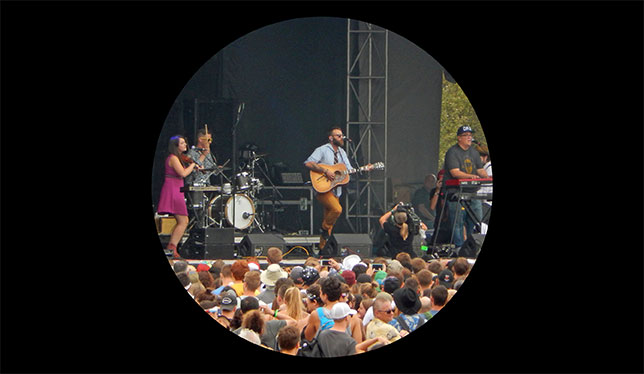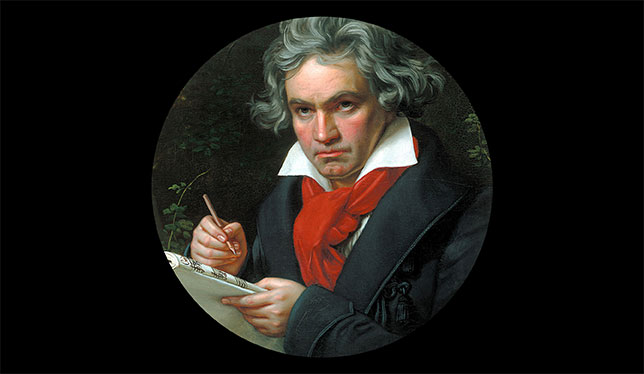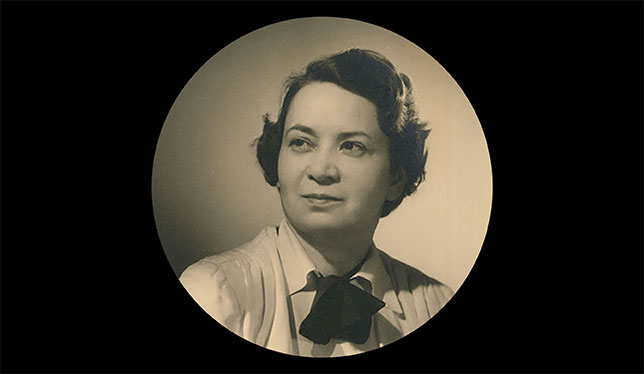Researching music as a political device, an expression of resistance and a technique to nourish the soul — College Affairs
Between propaganda and resistance, music has occupied an ambivalent place all through historical past. That is what Marie-Hélène Benoit-Otis, a professor at Université de Montréal and Canada Analysis Chair in music and politics, has discovered. A musicologist, pianist and music lover at coronary heart, Dr. Benoit-Otis is within the position that music performs within the formation of political discourses. Her favorite period is the Forties and Nineteen Fifties as a result of this noticed the emergence of the mechanisms used later in varied socio-political contexts. Hers is an enchanting educational profession centered round ardour, historical past, transdisciplinarity and the collective building of data.
In contrast to many instrumentalists whose mother and father have been additionally musical, Dr. Benoit-Otis owes her curiosity in music to early growth courses for four-year-olds. She selected the piano and continued her coaching in music at CEGEP earlier than contemplating two potential paths for college: pharmacy or musicology. “I had an epiphany after I made my course choice,” remembers the researcher, who was anticipating a profession as a pianist. It was an impromptu collaboration with one in all her colleagues that sparked her college focus. “She requested me to assist her as a result of I converse German,” says Dr. Benoit-Otis, who additionally has a postgraduate diploma in German research from the Canadian Centre for German and European Research.

Some would possibly name it a turning level, an “ah ha!” second or the penny dropping, however Marie-Hélène Benoit-Otis says that the expertise opened up a “Pandora’s field” for her. It was determined. She would dedicate her years of analysis to understanding how and why music can be utilized to serve political discourse. Music can play totally different roles on this respect. It may function a propaganda device within the fingers of the authorities, or as a method of resistance employed by musicians and their audiences. “Jail songs is usually a approach to withstand and survive in focus camps, for instance,” she says.
Malleable materials
Regardless of the context, music and politics are intently linked. Politicians in search of votes typically attempt to use rock music to bolster their credibility, typically with blended outcomes. As an instance, Dr. Benoit-Otis talked concerning the controversy round Justin Trudeau’s 2019 election marketing campaign music. The anthem of the Liberal Celebration of Canada, One Hand Up, by Ontario band The Strumbellas, had been clumsily translated and sung in French (On lève une main haute), a lot to the displeasure of many francophone ears.
“Usually a political celebration will use a music and it doesn’t enchantment to the general public, or the artists should not happy.”
A corrected model was launched, together with a humble apology from the Liberal chief. “Usually a political celebration will use a music,” says Dr. Benoit-Otis, “and it doesn’t enchantment to the general public, or the artists should not happy.” In Germany, the usage of Angie by Angela Merkel in 2005 was not nicely obtained by its composers, the Rolling Stones, despite the fact that Ms. Merkel’s celebration insisted it had obtained the best to play it at her rallies.

The identical piece of music can be used for diametrically opposed political ends. Beethoven’s Ninth Symphony was used to rejoice Hitler’s birthday in 1937 and 1942, in addition to to mark the autumn of the Berlin Wall in 1989. “As a result of there are not any phrases in instrumental music, you can also make it say no matter you need. You may construct your individual discourse round a piece,” explains Dr. Benoit-Otis, who accomplished a joint PhD in musicology at U de M and Freie Universität Berlin in 2010.
9 years later, below an initiative to create Tier 2 Canada Research Chairs for early-career researchers, she efficiently proposed one on music and politics. “Finally, Dr. Benoit-Otis and her analysis staff are in search of to categorise the varied political roles that music and musicians can play within the public sq., significantly in up to date societies,” her analysis abstract states.

Worldwide visibility
She now heads a lab composed of 12 college students. As well as, she is co-supervising a number of college students in different departments. In all, she has about 20 college students in her cost. Analysis tasks, particularly worldwide ones, have multiplied over time. Among the many main works, a staff of a dozen folks has been learning the hyperlinks between musical propaganda and diplomacy to attempt to outline the distinction between the 2. “The concept was to cowl as a lot floor as potential by accumulating obtainable examples,” Dr. Benoit-Otis explains. “Our preliminary findings present such a wide range of makes use of that we ponder whether they need to be clarified and categorized or left of their range.”
“As a result of there are not any phrases in instrumental music, you can also make it say no matter you need. You may construct your individual discourse round a piece.”
In August, her analysis was the topic of a round-table on the twenty first Quinquennial Congress of the Worldwide Musicological Society in Athens, the place she organized a dialogue on the advantageous line between diplomacy and propaganda throughout borders, with the time period “diplomacy” used for contexts deemed morally acceptable and “propaganda” for extra problematic makes use of of music.

Yvonne Odin.
She not too long ago flew to New Orleans to take part within the American Musicological Society’s 2022 convention the place, together with Cécile Quesney from Université de Rouen, she gave a chat on the jail songs of Yvonne Oddon, a member of the French Resistance who was arrested in 1941. All through her time in a focus camp, Ms. Oddon stored notes on the songs she and her fellow inmates made up from widespread melodies.
The 2 researchers’ evaluation centered on the significance of collective singing of widespread melodies to maintain up morale amongst a gaggle of extremely politicized prisoners. “The songs expressed the solidarity and hope one wants with the intention to survive imprisonment,” provides Dr. Benoit-Otis. This brings to thoughts the origin of blues music, which was an expression of resistance to slavery and is one more instance of the position of music as the final word area for freedom and humanity.
Source link
